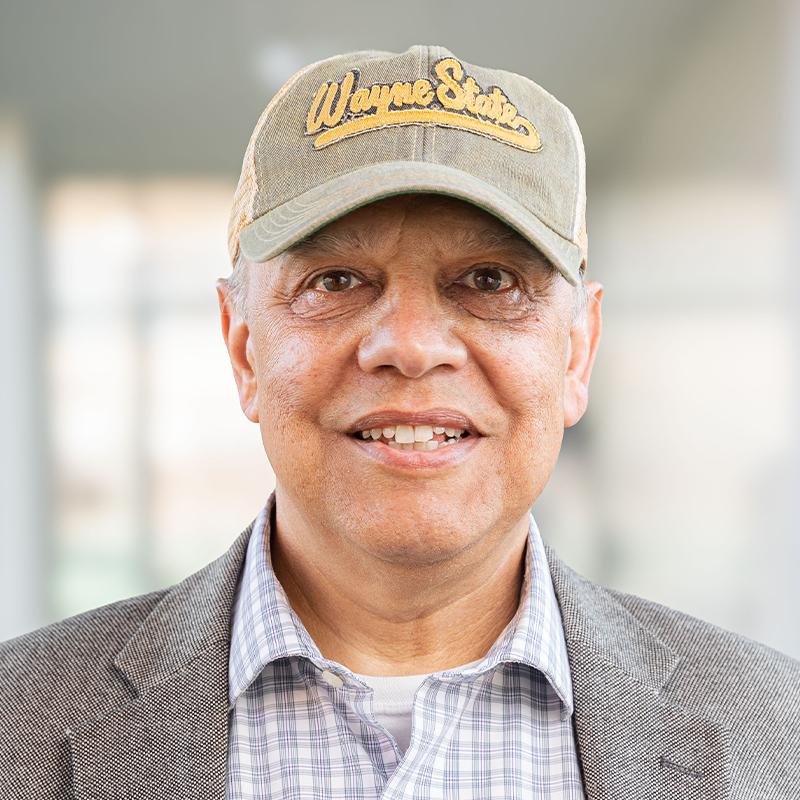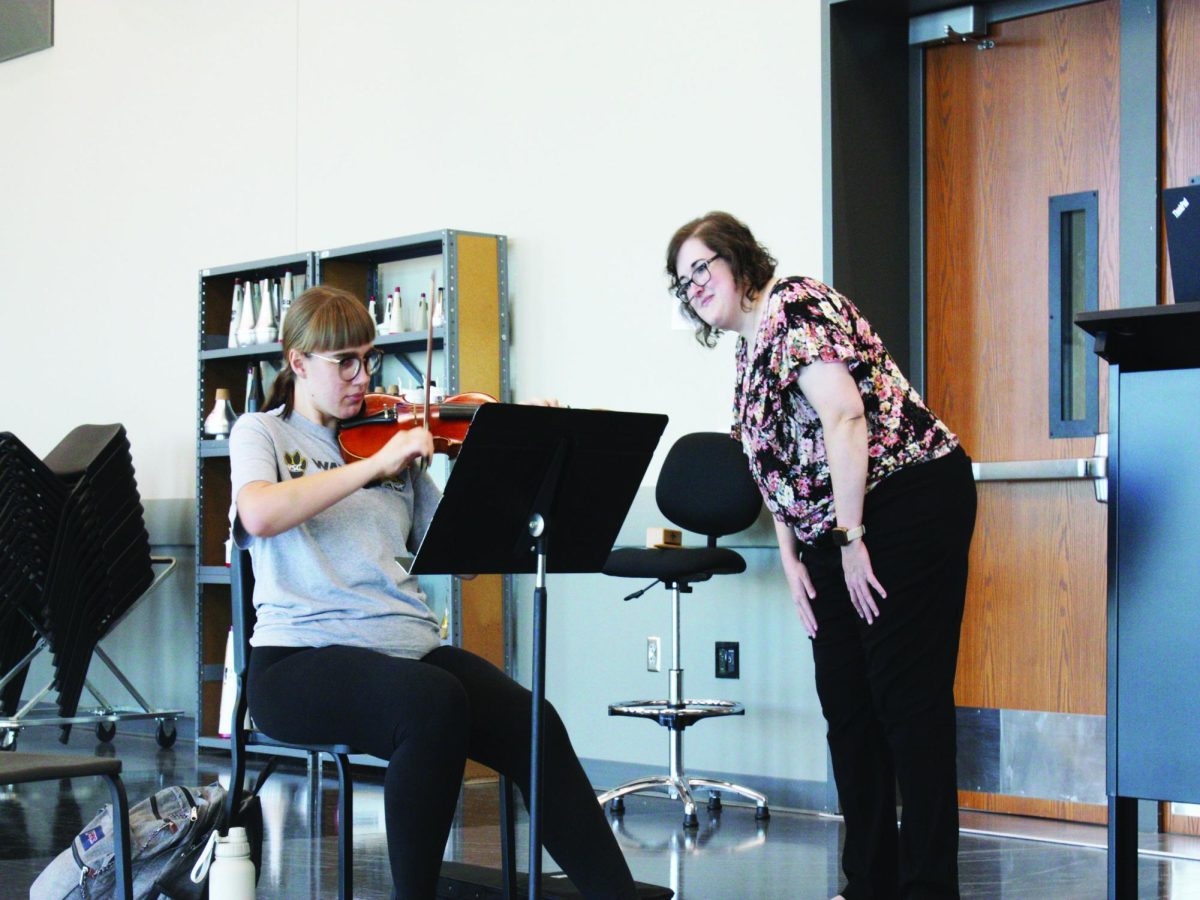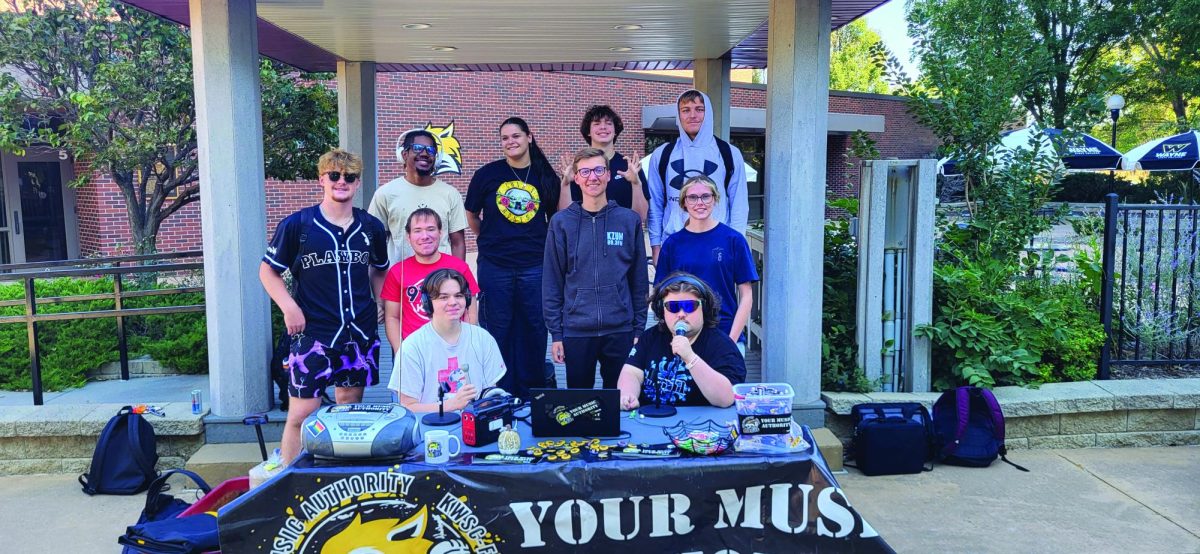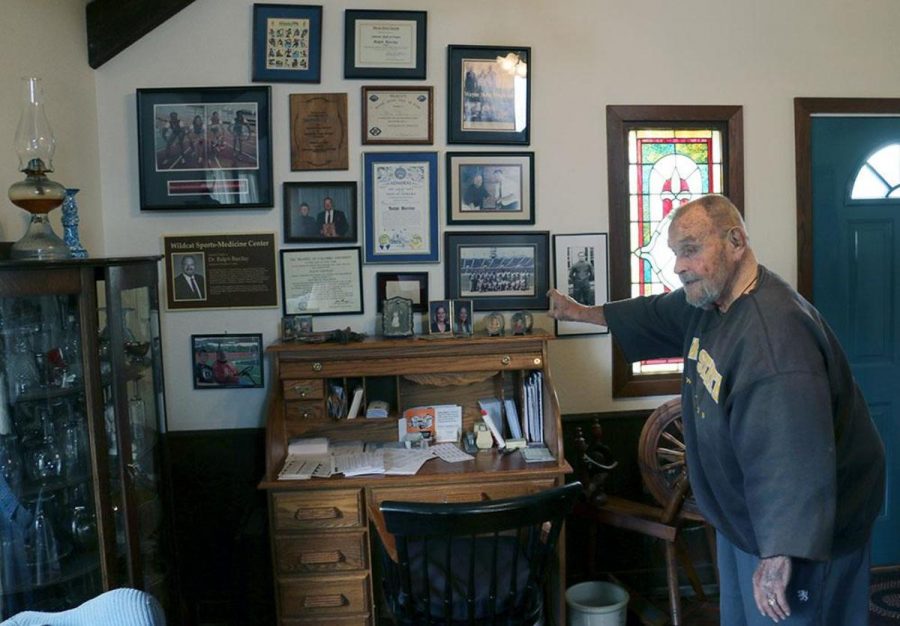Ralph Barclay: friends with the famous and ordinary
Barclay points to several photos on his wall that hold some of his greatest accomplishments, like the baton from the 1996 women’s Olympic relay team that he worked with.
April 6, 2016
More than 50 years ago, Wayne State College president William Brandenberg hired Ralph Barclay as defensive coordinator for the football team after a chance encounter at Columbia University in New York.
Barclay met with Brandenberg, who came to Columbia to raise money to build Bowen Hall, after hearing the president was looking for a football coach.
After decades of coaching football and swimming, heading the department of human performance, and heading athletic committees, Barclay, now 86, remains a well-known figure in the Wayne community.
When he was younger, Barclay had high aspirations to coach football at a major university. But while coaching at Western Illinois University in Macomb, where he was born and his dad coached, he decided to change career paths.
“I was looking at opportunities to be an assistant at Iowa or with the St. Louis (now Arizona) Cardinals, but I got ticked off by something. So I said ‘to hell with it,’ and went to Columbia,” Barclay said.
In 1962, Barclay left the small western Illinois town and headed to the Big Apple, where he worked as an assistant coach while pursuing a doctorate degree.
“Brandenberg was in town, and I heard he was looking for a football coach, so I drove to Kennedy [International Airport] and met with him,” Barclay said. “He was a great guy, and my wife and I spent the night driving through Central Park and Greenwich Village with him.”
From 1965-82, Barclay ran a stingy defense at WSC and adopted what he called a “badass, mean guy” personality.
“[The players] hated me at the time, but they all love me now,” Barclay said. “They still call, write and come back to visit. The most important thing is to have a relationship with your athletes, and that’s what I miss.”
On the field, Barclay’s favorite memory was an old game against St. Cloud State.
“We were tied, with the ball on our own five-yard line, and there were only a few seconds left. We somehow broke out for a 95-yard passing touchdown, and that game helped us win conference,” Barclay said.
Barclay’s success as a coach was not limited to the gridiron. In two stints as the men’s swim coach at WSC, from 1965-68 and 1977-81, Barclay compiled a 45-32 dual record and won four NAIA District and Nebraska College conference titles apiece.
After hanging up the football whistle in 1982, Barclay remained as the dean of the department of human performance for another decade, formally retiring in 1992.
One of his favorite moments in that time was the dedication of a conference center in Rice Auditorium to longtime athletic department custodian, friend and fellow WSC athletic department hall-of-famer Henry Schmitz.
“Henry was a great friend of mine, and we always had fun joking around together,” Barclay said. “He had this stutter, and every time he got to the punchline of his jokes, his stutter would kick in, which made him even funnier.”
Even after he decided to go the educational route, high-profile coaching jobs remained on the table for Barclay while he was at WSC.
“My former high school teammate, Red Miller, was coaching the Denver Broncos, and a year after winning the Super Bowl, offered me a job as an assistant,” Barclay said. “But after I got my doctorate, I decided to live a low key life, and my ambitions changed. And I would do it all over again.”
After his retirement from Wayne State, Barclay kept busy, sometimes in high profile manners. The walls of his home are lined up with memories of encounters with sports greats such as Jim Thorpe, Walter Payton and Muhammed Ali. Barclay and Ali built a friendship after two of Ali’s daughters attended the same Western Illinois University Barclay has been connected with since birth.
He also worked with the United States track and field team for the 1996 Olympics in Atlanta and has the women’s relay baton, signed by the four members, as a keepsake.
Greg McDermott, former WSC men’s basketball coach and father of Chicago Bulls forward Doug McDermott, remains a close friend to Barclay, though he is now at Creighton, and the two keep in contact regularly.
As for why Barclay stayed in Wayne after retiring, the answer was simple. The people.
“There are just really good people in this part of the country,” Barclay said. “I had wanted to travel in my retirement, but after my wife died, I figured, ‘why leave to go somewhere alone, when I can stay and be surrounded by good friends?’
“It has always been easy to make friends here, and I like being able to attend events when my friends here get honored.”
Barclay can be spotted in his golf cart at every home football game, and even attends a few road games every year. Though he stays close to the program, he no longer misses coaching the way he did when he first retired.
“When I first retired, I thought not coaching would drive me nuts,” Barclay said. “But by November, I would think, ‘what the hell did I ever do this for to begin with?’ It’s the people that I miss more than the coaching.”
Barclay is a busy man every morning, as he has two different groups of friends he meets for coffee downtown.
“There’s a group of about 15 of us that meet at about 7:30 every morning,” Barclay said. “We like to say we talk about sex and sports, but usually all we end up talking about is sports.
“But they all have jobs and have to go to work, so at 8:30, I go and have coffee again with another group of friends.”
Not many people would expect a man who has lived such an interesting life to reside in a small town. His life fits more in line with the storyline of “Forrest Gump” than it does an integral member of the Wayne community.
But no matter how uncommon Ralph Barclay’s life may be, his life still has one common factor with a majority of the population.
“I watch too much damn TV.”









